The Waseda-Keio Joint Doctoral Career Design Conference 2025 Provided a Platform for Doctoral Students and Organization Representatives to Network
Wed, Oct 29, 2025-
Tags
The Waseda-Keio Joint Doctoral Career Design Conference 2025, co-organized by the Waseda University Career Center and the Career Support Office of the Faculty of Science and Technology at Keio University, was held on 9 October 2025 at Komatsu Centennial Hall in Waseda’s Research Innovation Center. The event served as a platform for in-person networking between representatives from 19 organizations and around 100 graduate students, including many international students, from Waseda and Keio Universities. This event is an example of the many ongoing academic and extracurricular collaborations between the two universities, who are often seen as “traditional rivals”.
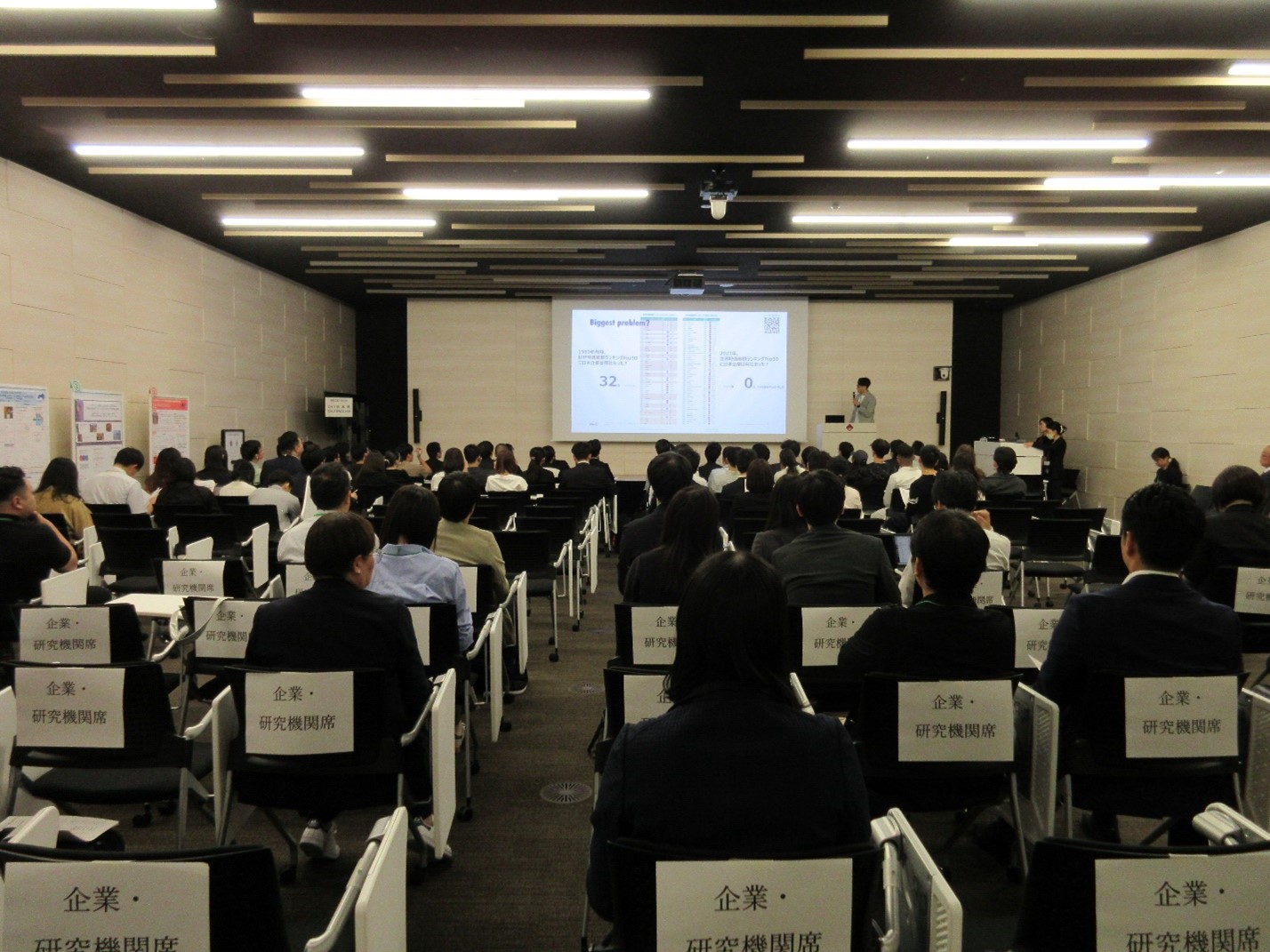
Students gathered at the front of the room to listen to presentations from organization representatives
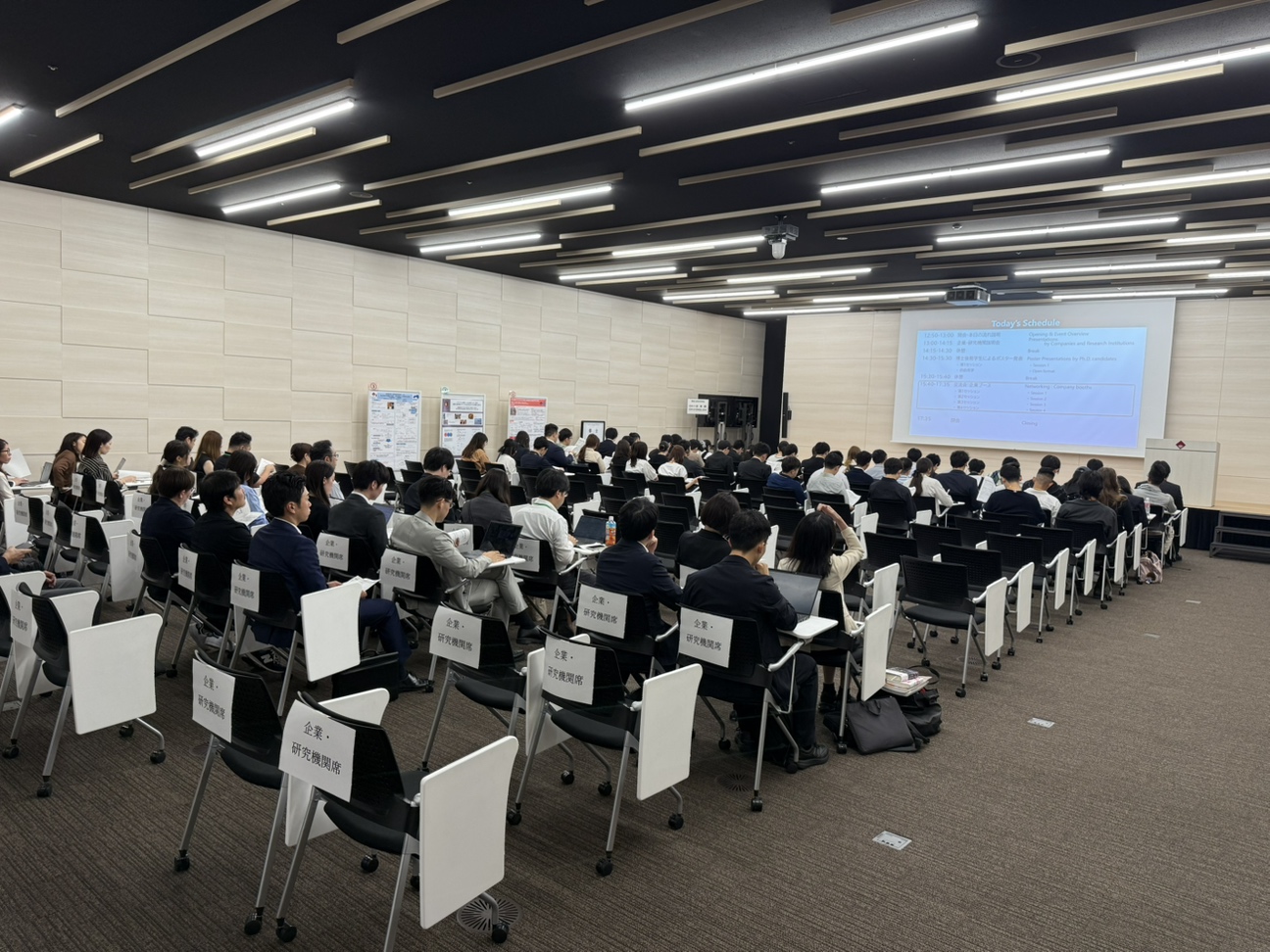
Organization representatives giving presentations
The conference was organized into three main sessions. In the first session, representatives from the participating organizations gave 3-minute presentations introducing themselves in Japanese, with simultaneous interpretation provided in English. The companies spanned across different industries such as manufacturing, technology, finance, consulting, and included big names such as Toyota, Panasonic, Hitachi, NTT, KPMG, Nomura Securities, Nikkei BP, and Shiseido. Their presentations covered areas such as their business operations and recruitment processes. Some of the representatives were Waseda and Keio alumni and had even enrolled in Ph.D. programs themselves.
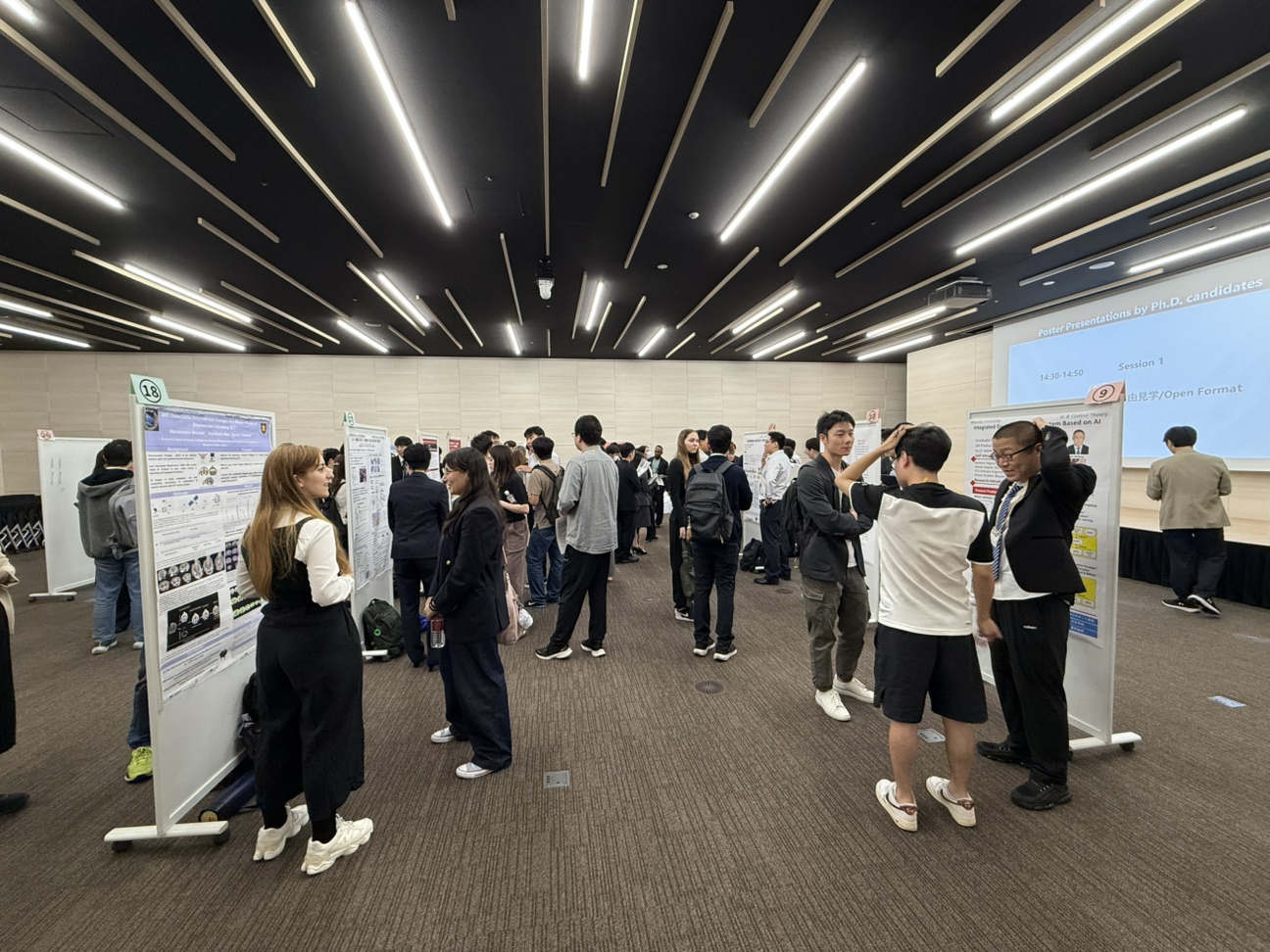
The poster session
In the second session, around 30 graduate students (primarily Ph.D. students) of different nationalities had the opportunity to introduce themselves and their research using A0-sized posters at their own individual booths in either Japanese or English. Company representatives walked around freely and asked questions about the students’ research and skill sets. The students came from both Waseda University and Keio University and represented various disciplines and stages in their graduate programs. The posters featured a wide range of topics such as AI, machine learning, software development, material science, cancer research, cognitive science, waste management, and applied mathematics. There were many fascinating projects, but two posters caught my attention: one introduced a method to track island movement using seabirds and the other showcased a robotic arm capable of replicating calligraphy.
An interesting point about the student poster session was how it differed from traditional academic conferences. While academic presentations are usually limited to specific research fields, the posters at this conference came from a wide range of disciplines. Rather than focusing purely on research outcomes, the posters were designed in the style of a résumé, highlighting students’ overall experiences and transferable skills in an accessible format and encouraging informal one-on-one conversations.
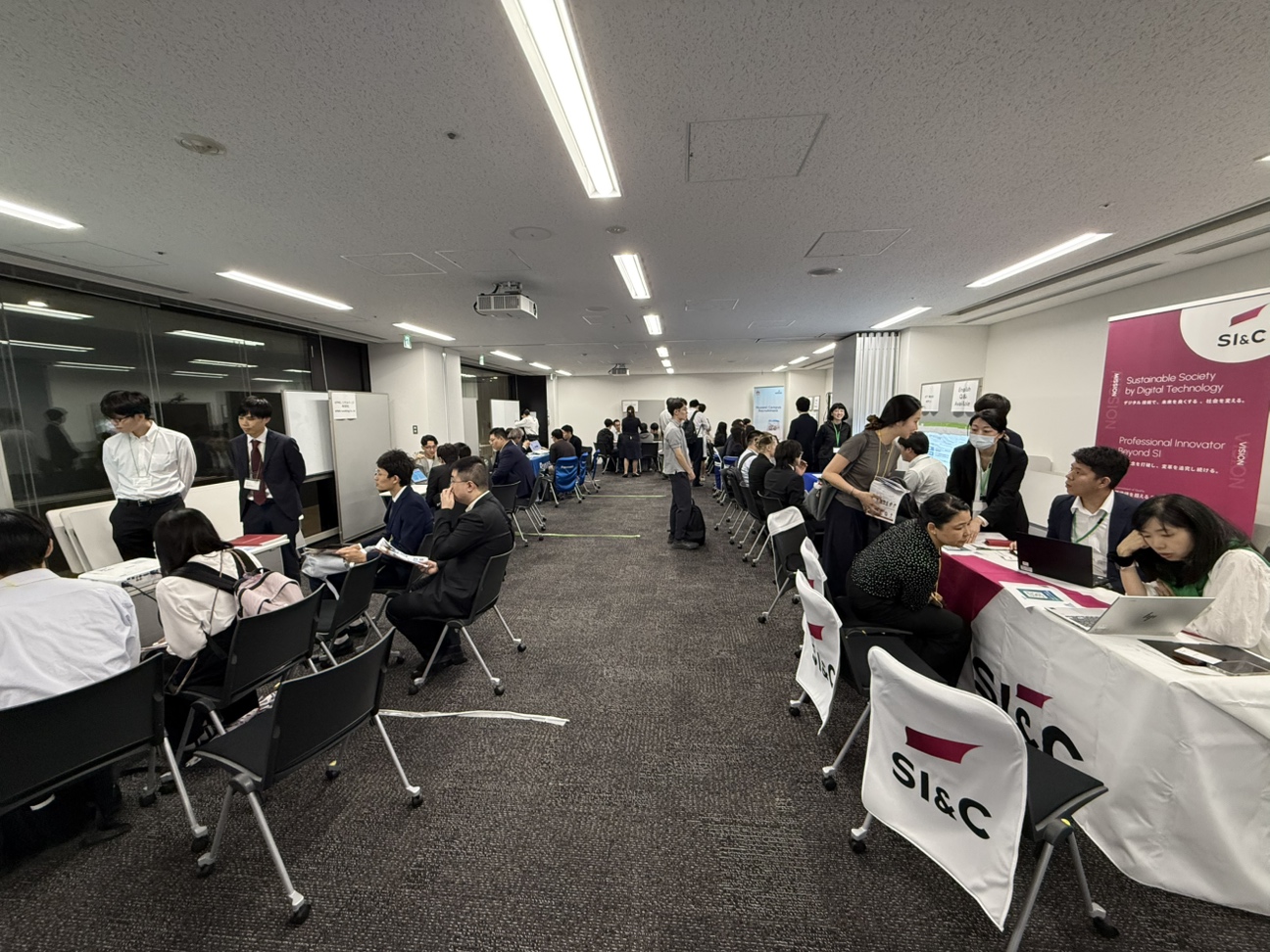
Students consulting with organization representatives
The third session reversed the roles. This time, organization representatives were stationed at booths in another room while students moved freely between them, asking more detailed questions based on the information provided during the earlier presentations. This allowed for deeper engagement and clarification of specific interests from both sides.
The Waseda-Keio Joint Doctoral Career Design Conference provided valuable career support for graduate students by fostering direct conversations between organizations and the students in a free and open atmosphere. As a previous participant who gave a poster presentation, I felt that the conference was beneficial in several ways. It allowed students to gather firsthand information about companies they are interested in. It also encouraged students to reflect on their own experiences by explaining their research in simple terms and expressing what led them to their fields, what skills they developed, and how those skills can be applied in future job roles.
Furthermore, the conference created a rare opportunity to bring together graduate students from Waseda and Keio across various academic backgrounds. During the tea breaks between sessions, many students were able to network and make friends with those who faced similar challenges in their career development. The conference offered a supportive environment for professional networking and encouraged students to think about their career goals and explore potential career opportunities.
This article was written by the following Student Contributor:
Peter Chai (Kai Shibata)
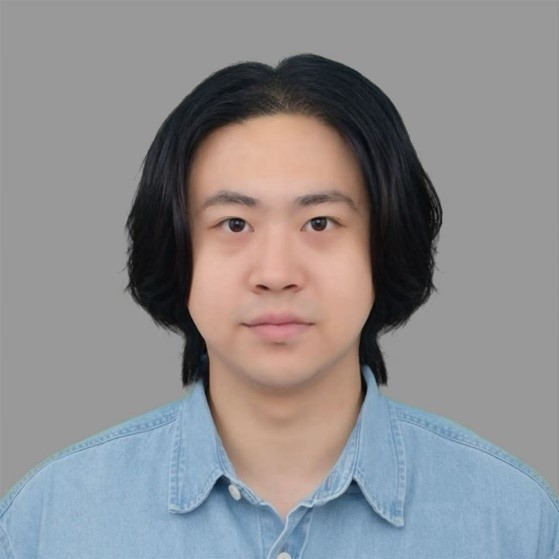
Graduate School of Political Science













